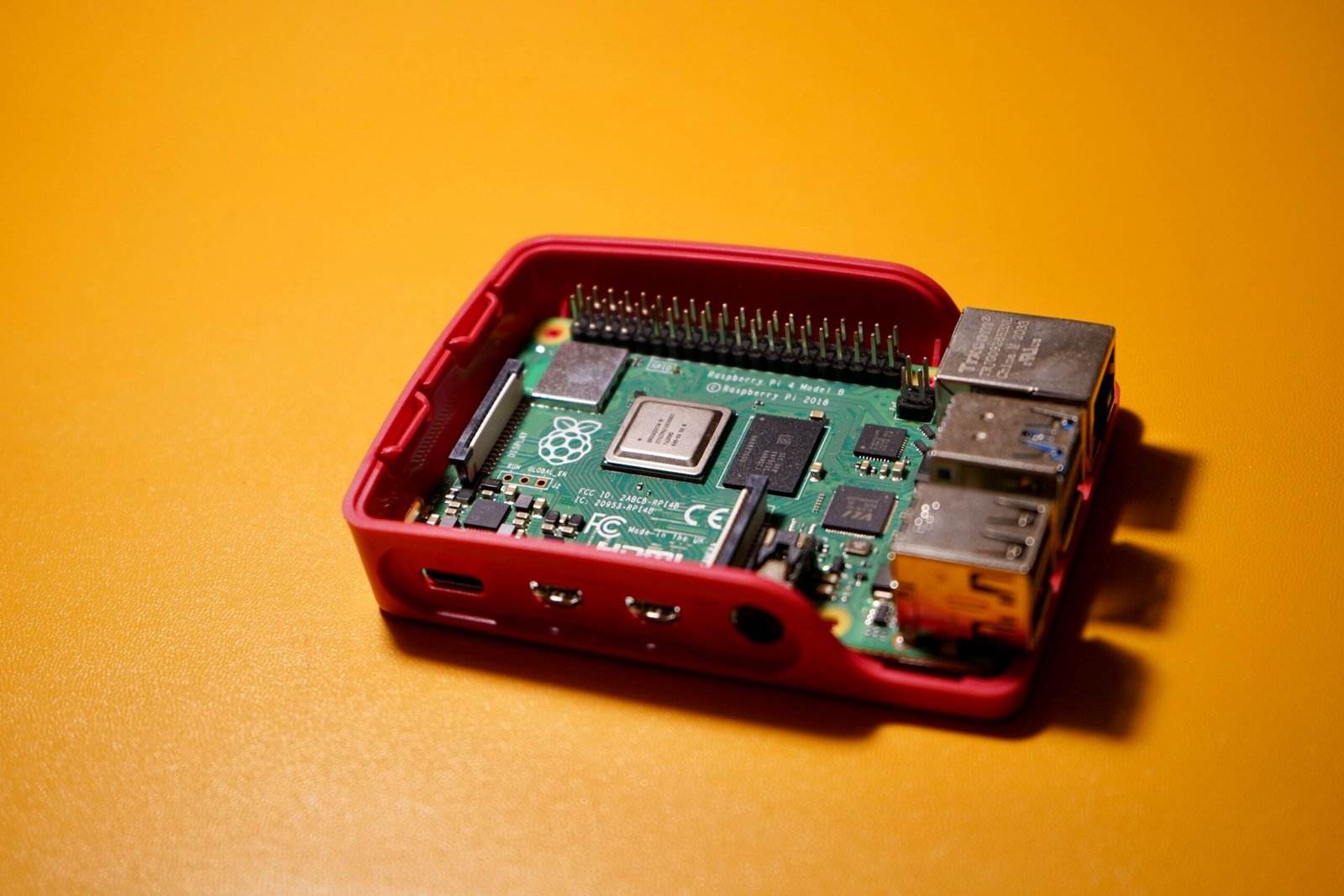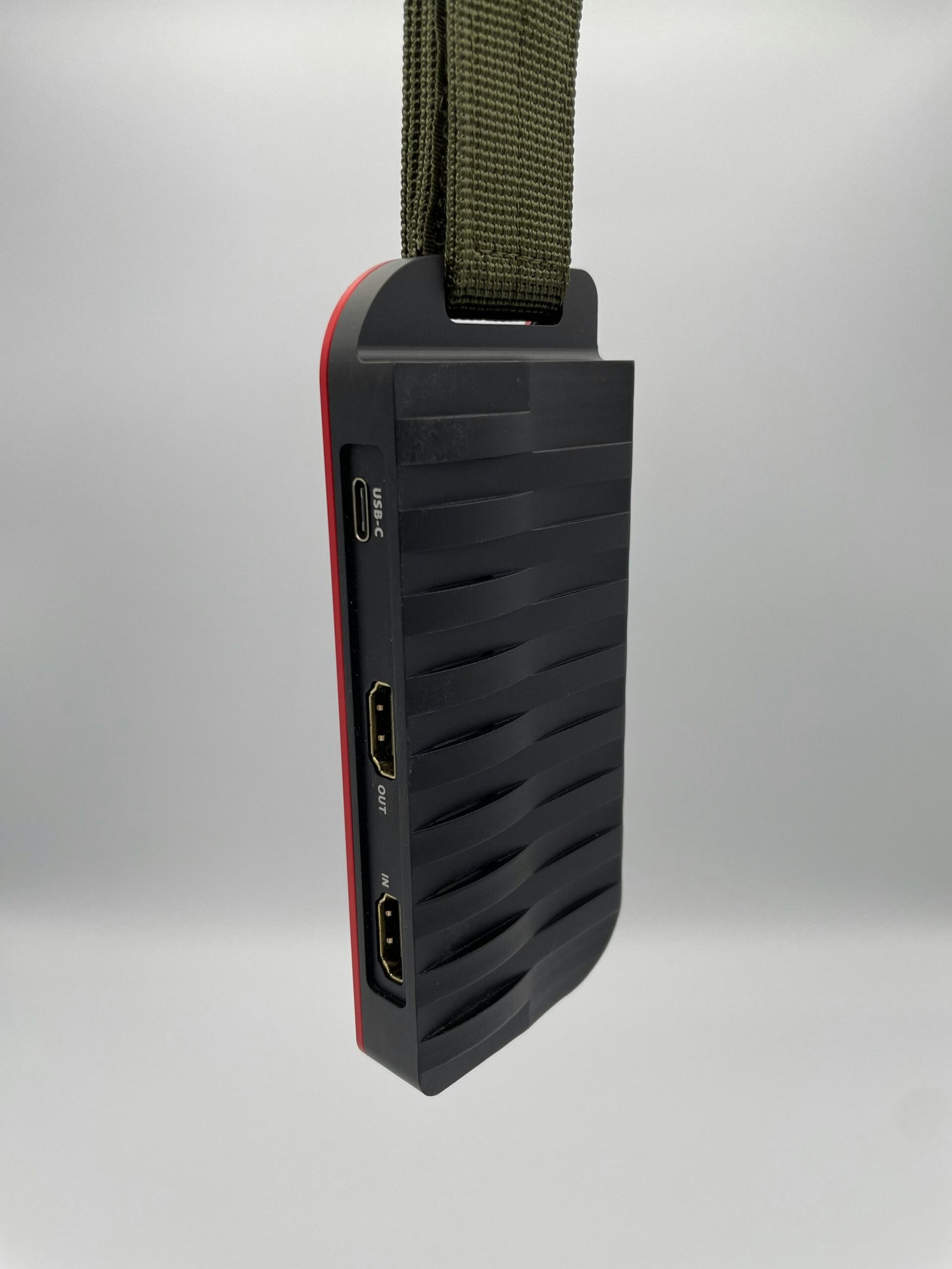Exploring the Various Uses of Mini Computers
Introduction to Mini Computers
Mini computers have significantly evolved since their inception in the mid-20th century, marking a transformative chapter in the world of personal computing. Originally designed to bridge the gap between larger mainframe computers and smaller microcomputers, mini computers offered a middle ground that provided both ample computing power and affordability. These early models played a crucial role in academic and business environments, where they were employed for a variety of computational tasks.
At their core, mini computers are defined by their compact size and notable processing power, making them distinct from both their larger and smaller counterparts. Unlike bulky mainframes, mini computers are engineered to fit in virtually any workspace, offering enhanced portability without compromising on performance. Key features of mini computers include a small form factor, energy efficiency, and robust processing capabilities. These features make them ideal for users who require reliable performance in a smaller footprint.
Notable advancements have propelled the mini computer from being a specialized tool to becoming a versatile device used by professionals, hobbyists, and general consumers alike. Modern mini computers now often come equipped with multi-core processors, ample memory, and sophisticated graphics capabilities, mirroring the performance levels of their larger desktop counterparts.
Popular models in the current market include the Raspberry Pi, Intel NUC, and Mac Mini. The Raspberry Pi, for instance, has become a favorite among educators and developers due to its affordability and versatility. Intel NUCs offer a range of powerful mini computers that cater to both personal and business needs, combining compact design with high-end performance. The Mac Mini, a product by Apple, provides a sleek, user-friendly interface along with the power of macOS, appealing to those invested in the Apple ecosystem.
With advancements in technology continuing at a rapid pace, mini computers are poised to play an even greater role in the world of computing. Their unique combination of portability and performance makes them an attractive option for a diverse range of applications, from academic research to home entertainment systems.
Educational Purposes
Mini computers have cemented their place in modern educational environments, offering an array of applications that revolutionize traditional teaching methods. In classrooms, these compact devices are particularly instrumental in teaching coding skills to students, providing an accessible and manageable platform for learning various programming languages. Schools have embraced coding programs such as Scratch, Python, and Java, enabling students to develop their computational thinking and problem-solving skills at an early age.
Beyond coding, mini computers facilitate interactive learning experiences that engage students more deeply in the material. Interactive whiteboards and other digital learning tools, when integrated with mini computers, enhance interdisciplinary learning by incorporating multimedia resources and interactive modules. This technological integration allows for a more dynamic and engaging educational experience compared to conventional textbook-based approaches.
Additionally, mini computers empower students to conduct research and complete projects more efficiently. With internet connectivity and various pre-installed educational software, these devices provide students immediate access to a wealth of information and digital resources. This advantage is notable in subjects requiring extensive research or practical application, such as science, technology, engineering, and mathematics (STEM).
Specific educational programs have greatly benefited from the implementation of mini computers. Noteworthy examples include the Raspberry Pi Foundation’s initiatives, where devices like the Raspberry Pi are used to teach programming and other technical skills across various educational levels. Institutions such as the Massachusetts Institute of Technology (MIT) and the University of Cambridge have successfully integrated mini computers into their curricula, showcasing their potential in higher education.
The versatility and accessibility of mini computers make them indispensable tools in modern education. As technology continues to evolve, their role in enhancing teaching and learning processes across the globe becomes increasingly significant.
Mini computers have emerged as pivotal components in the realm of home automation and the Internet of Things (IoT). Their compact size, affordability, and versatility make them an ideal choice for connecting and controlling a multitude of smart home devices. These diminutive powerhouses are essential for managing lighting systems, security cameras, thermostats, and other automated home appliances. Integration into home automation setups allows mini computers to function as central hubs, orchestrating the seamless operation of connected devices.
One of the primary roles of mini computers in home automation is to act as controllers. Popular devices such as the Raspberry Pi are often utilized in DIY projects for their ease of use and compatibility with a wide range of sensors and modules. For instance, a Raspberry Pi can be programmed to handle complex tasks, such as monitoring home security systems, managing energy consumption, or triggering automated routines based on pre-set criteria. The versatility of these computers ensures they can accommodate various home automation scenarios, significantly enhancing the smart home experience.
Another significant aspect is their compatibility with various home automation protocols and platforms. Mini computers typically support well-known protocols like Zigbee, Z-Wave, and Wi-Fi, enabling seamless integration with diverse smart home ecosystems. Through platforms such as Home Assistant, OpenHAB, or Node-RED, users can create custom automation scripts that enhance functionality and contribute to a more intuitive and interconnected smart home environment.
In practical applications, the use of mini computers extends to numerous creative DIY projects. Enthusiasts apply Raspberry Pi devices to build custom home assistants, integrate advanced AI capabilities, or develop bespoke security systems. These projects not only exemplify the flexibility of mini computers but also illustrate their potential in pushing the boundaries of conventional home automation.
In conclusion, mini computers have revolutionized home automation and IoT by providing a robust, customizable foundation for managing smart devices. Their ability to adapt to various protocols and support innovative projects makes them indispensable tools in the pursuit of smarter, more efficient homes.
“`html
Entertainment Systems
Mini computers have become an essential component in modern entertainment systems, transforming the way we consume media, play games, and interact with content. One of the primary uses of mini computers in this domain is powering media centers. These compact devices can be connected to a high-definition television, creating an all-in-one entertainment hub that streams movies, TV shows, and music seamlessly. With support for various operating systems, such as Android and Linux, mini computers provide flexibility for users to choose their preferred interface and applications.
In addition to serving as media centers, mini computers are also pivotal in the functioning of streaming devices. Devices like the Raspberry Pi can be configured to run software such as Kodi or Plex, enabling users to create custom streaming solutions tailored to their needs. This capability allows for high-quality video streaming, efficient file sharing, and the organization of extensive media libraries, all managed through a user-friendly interface.
Gaming is another arena where mini computers shine. They can be used as the foundation for gaming consoles, offering robust performance in a compact size. These computers are capable of running various games and can support gaming platforms such as RetroPie, which emulates classic consoles and arcade games. This provides gamers with the opportunity to enjoy a wide range of gaming experiences without the need for bulky hardware.
Moreover, mini computers enhance the user experience by supporting a multitude of multimedia applications. Whether it’s video editing, audio production, or streaming live content, these devices offer the processing power and versatility required to handle demanding tasks efficiently. Their ability to run multiple operating systems further extends their utility, as users can switch between different environments to optimize performance for specific applications.
Overall, mini computers significantly elevate the home entertainment experience by providing a compact, yet powerful, solution that caters to diverse multimedia demands. Their versatility, coupled with robust performance, ensures that users can enjoy high-quality entertainment, gaming, and media production all from a single, efficient device.
“`
Small Business Operations
Mini computers are rapidly gaining popularity among small businesses, offering several advantages that enable streamlined operations and enhanced productivity. One of their primary benefits is their cost-effectiveness. Unlike traditional desktop setups, mini computers require a significantly lower initial investment, making them an ideal choice for startups and small enterprises with limited budgets. These compact devices also boast energy efficiency, consuming less power than their bulkier counterparts, which translates to reduced operational costs over time.
In the context of point-of-sale (POS) systems, mini computers are particularly valuable. They can efficiently handle transactions, manage customer data, and process payments, all while taking up minimal counter space. For example, small retail stores and cafes often employ mini computers as their primary POS systems, integrating them seamlessly with other peripherals such as barcode scanners and receipt printers. This setup not only enhances the customer experience by speeding up transactions but also provides business owners with critical data analytics to inform inventory and sales strategies.
Additionally, mini computers facilitate effective inventory management—a vital component for small businesses. By integrating mini computers with inventory management software, businesses can monitor stock levels in real-time, streamline ordering processes, and reduce the risk of overstocking or stockouts. This proven approach has been successfully adopted by numerous small enterprises, such as local boutiques and specialty stores, which have seen considerable improvements in operational efficiency and inventory accuracy.
Office productivity also reaps the benefits of mini computers. In small office environments, where space is at a premium, mini computers provide powerful computing abilities without the bulk. They support various office applications, from word processing and spreadsheets to video conferencing and collaborative tools. This versatility allows small business teams to maintain high levels of productivity while enjoying the ergonomic advantages of a clutter-free workspace.
Case studies further underscore the efficacy of mini computers in small business operations. For instance, a local bakery that integrated mini computers into its POS and inventory systems experienced smoother transaction processes and better inventory control. Another example is a home-based graphic design firm that optimized its workspace and enhanced productivity by leveraging the compactness and high performance of mini computers.
Overall, the transition to mini computers can herald significant efficiency and cost benefits for small businesses, making them a compelling choice for modern entrepreneurs.
Programming and Development
Mini computers have carved a significant niche in the realm of programming and development, thanks to their affordability and versatility. These compact devices have proven invaluable for a range of activities, from software testing to running development environments and even hosting small-scale web servers.
One of the primary advantages of using mini computers for development purposes is their ability to run various programming languages and development tools efficiently. Developers can utilize these devices to experiment with different coding frameworks, thereby expanding their skills and knowledge without investing in more expensive, traditional computers.
Software testing is another critical area where mini computers shine. Given their cost-effectiveness, they can be deployed to emulate different environments and conduct multiple test scenarios concurrently. This ability significantly speeds up the debugging process, ensuring quicker iterations and rapid software development cycles.
Moreover, mini computers can also serve as reliable hosts for small-scale web servers. They allow developers to test web applications in a real-world setting without the need for dedicated, high-cost server hardware. This capability makes them particularly beneficial for startups and individual developers who are working within budget constraints but still require reliable performance.
For those new to programming, mini computers present an excellent opportunity to learn and practice the fundamentals. Their compact size and affordability make them ideal for educational purposes, enabling aspiring programmers to experiment with coding languages and development tools without any substantial financial burden. Educational institutions are increasingly incorporating mini computers into their curriculum, recognizing their potential to provide hands-on experience and foster practical learning.
Overall, the multi-faceted utility of mini computers in programming and development amplifies their importance in the tech landscape. Their application in software testing, running development environments, and hosting web servers underlines their potential as both educational tools and development platforms, making them a cornerstone in modern programming and development practices.
Scientific Research
In the realm of scientific research, mini computers have emerged as indispensable tools, enabling researchers to conduct experiments that were previously inconceivable. Their compact size, coupled with substantial computational capability, allows scientists to perform data collection, analysis, and visualization with unprecedented efficiency. This versatility has found application across various scientific domains, ranging from environmental monitoring to astronomy and biology.
One prominent use of mini computers in environmental monitoring is the deployment of sensor networks for data collection in remote or difficult-to-access areas. These miniaturized systems can record and process data on parameters such as temperature, humidity, and pollutant levels, facilitating real-time analysis and long-term ecological studies. For instance, mini computers enable the monitoring of climate change impacts on flora and fauna in remote ecosystems, providing invaluable data that can guide conservation efforts.
Astronomy also benefits significantly from the capabilities of mini computers. Amateur and professional astronomers alike use these powerful devices to automate telescope operations, track celestial objects, and process astronomical images. Mini computers assist in controlling observatory equipment, collecting vast amounts of data from space, and even contributing to large-scale collaborative projects like SETI (Search for Extraterrestrial Intelligence). The computational power of mini computers allows for the rapid analysis of data, aiding in the discovery of new planets and distant galaxies.
In the field of biology, mini computers are employed to enhance laboratory research. They are used to manage and analyze complex datasets generated from genomic studies, protein structure analysis, and epidemiological surveys. For example, in genomics, mini computers help in sequencing DNA and RNA, enabling researchers to understand genetic variations and their implications for health and disease. Their portability and efficiency make them ideal for use in field studies, where scientists can analyze samples on-site, reducing the time lag between data collection and analysis.
Overall, the integration of mini computers into scientific research has revolutionized various disciplines, offering the computational power and flexibility necessary to advance our understanding of the natural world. The continuous evolution of these devices promises to unlock even more possibilities in the future, shaping the landscape of scientific inquiry and discovery.
Conclusion and Future Prospects
The exploration of mini computers uncovered a vast array of applications that cater to diverse needs across multiple industries and user demographics. From empowering educational initiatives through cost-effective and accessible technology to revolutionizing home automation and entertainment systems, mini computers have profoundly impacted both personal and professional realms. In the business sector, companies leverage the compactness and efficiency of mini computers to streamline operations, enhance productivity, and implement creative technological solutions. In scientific research, their portability and computational power facilitate the handling of complex simulations and data analysis at reduced costs.
Currently, mini computers are pivotal in providing scalability and flexibility, effectively meeting the demands of an increasingly digital world. Healthcare practitioners benefit from portable diagnostic tools, while hobbyists and developers find them indispensable for innovative projects and prototypes. As we progress further into the digital age, the role of mini computers is anticipated to expand, riding the wave of rapid technological advancement.
Looking ahead, several exciting trends and innovations loom on the horizon for mini computers. Enhanced processing power stands at the forefront, promising to elevate performance and efficiency, thereby widening the scope of applications that mini computers can adeptly handle. Progress in connectivity, notably the adoption of 5G and beyond, will likely bolster their capability in Internet of Things (IoT) implementations, ensuring seamless integration into a myriad of smart devices and systems. Furthermore, as mini computers converge more with emerging technologies like Artificial Intelligence (AI), Machine Learning (ML), and edge computing, their potential to drive smart solutions becomes exponentially greater.
The future of mini computers is vibrant, and their evolution is poised to further align with the burgeoning needs of users across the globe. As these compact devices continue to break barriers and innovate, we can expect them to play an increasingly pivotal role in the technological landscape, offering unprecedented levels of convenience, efficiency, and creativity.







